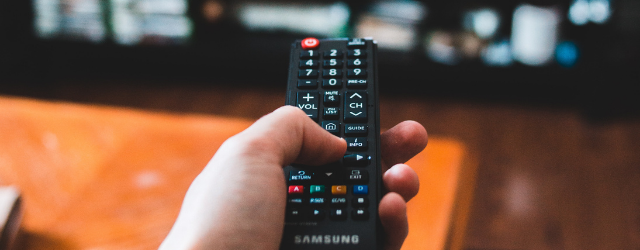Habit Makers, Habit Breakers

Lately, we’ve slipped into a not-so-good habit. After dinner, and after all the normal stuff is done, we collapse onto the couch in front of the TV.
We settle into our various devices – answering emails, prepping for meetings the next day or updating our SmartLoving social media accounts. Before we know it, a couple of hours has gone by and even Netflix is asking if we’re still watching (we were only ever listening at best).
It’s not as if we’re totally wasting time, it just feels unsatisfying somehow. We haven’t really had effective recreation and we haven’t been fully productive either. We certainly haven’t had quality couple time.
Habit makers
Like it or not, we are creatures of habit. We have an affinity for the familiar and the predictability of routines provide us with a sense of safety.
It’s hard to relax if we don’t feel safe, so part of the attraction of routines is in helping us to feel secure. That’s important for relationships as security enables us to be open and vulnerable with each other.
While many of our daily routines are unproductive for our marriage, they don’t have to be. We can take our affinity for the familiar and, with a bit of intentionality, nudge them into meaningful rituals that nourish our marriage with minimal effort.
A ritual is a little different to a routine. Both have a regular time and format, but rituals differ in that they also have positive meaning.
For example, saying Grace before meals is ordinarily a ritual, but it can devolve to a meaningless routine if we do it out of obligation or mindless habit.
Habit breakers
We’ve sometimes struggled to maintain healthy relationship rituals. Part of this was Byron’s resistance to be locked in and rule-bound. He values spontaneity as a key part of romance.
We remember with humour rushing out the door to a private retreat some years ago. Francine thought it would be a great opportunity to work our way through the latest book from a ‘relationship guru’ she had acquired.
But alas – the book simply could not be found.
Frantic appeals to Saint Anthony failed to locate it, and eventually she abandoned the search to join Byron in the waiting car. (Though he denies it, she still believes Byron secretly hid the book!)
Arriving for our first session with the spiritual director, Byron was triumphant when he confirmed that the book was unnecessary and a distraction. Francine was not amused, though she concedes that we did have a very fruitful, entirely unscripted, three-day retreat without said support material.
We tell this story to illustrate the difference in our personalities and values. Francine readily embraces structure as she has a high need for the stability of routines but can become obsessive. Routines, however, were not as common in Byron’s childhood and he values spontaneity and variety, even while recognising more routine would help.
Rituals for life
Spontaneity has its place, but it can also be a stumbling block to establishing relationship rituals. The danger in a busy life, is that without the structure of regular rituals, spontaneity doesn’t get a chance to express itself.
Spontaneous romance is always a casualty in a busy lifestyle because it takes energy (and we’re exhausted), and it takes time (and we have little).
It sounds romantic, but in practice, spontaneity usually translates into missed opportunities. Tiredness, distractions, busyness – these all work against spontaneous romance.
On the other hand, rituals protect our relationship from decay when we are busy. They create the environment and space in our crowded life where spontaneity’s older sibling – creativity – can be expressed.
And this is the key for life-giving relationship rituals: craft them with enough structure to make them easy to begin but allow flexibility for creative expression within them. The other trick is to take something that easily aligns with an existing routine and build a ritual around that.
Rituals that resonate with our natural habits and desires, and nurture our relationship, provide a rhythm that makes our couple time a regular and positive activity without being a straitjacket.
Our challenge is to similarly craft a new after-dinner ritual – one that brings us together consistently but with flexibility.



